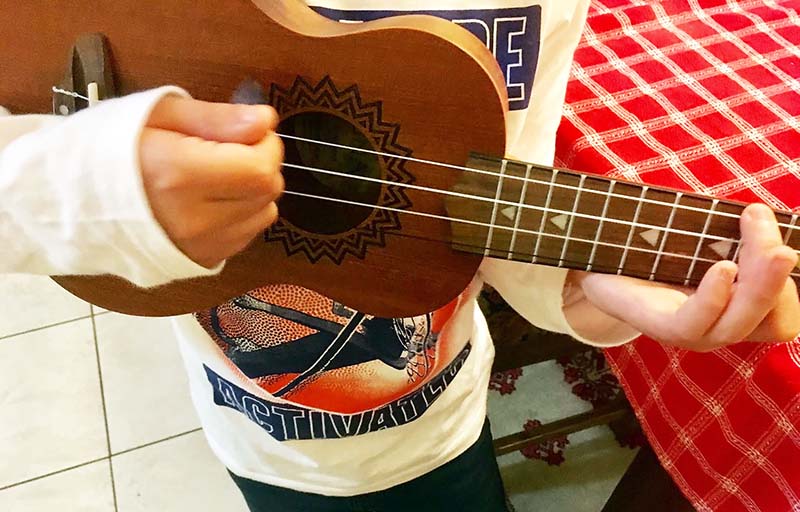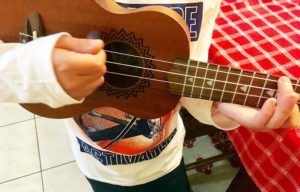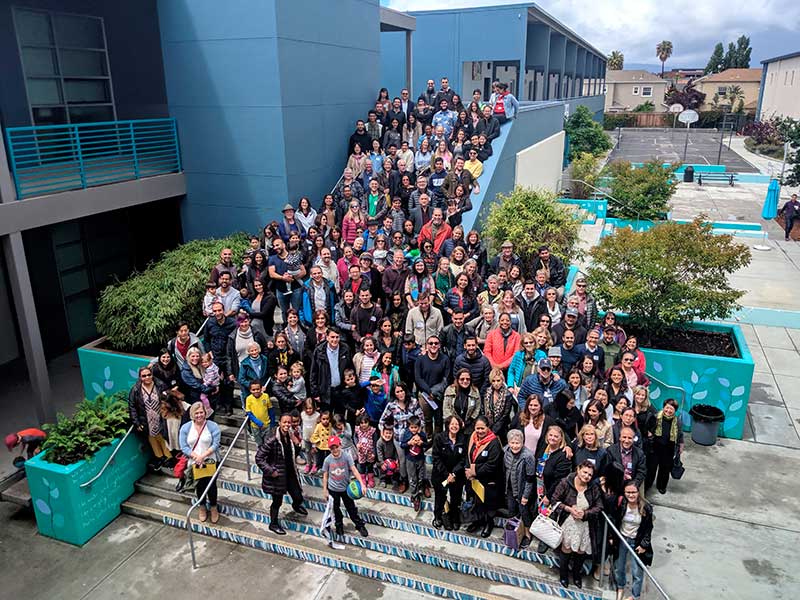
A lens into the future: Is this what school was always supposed to be?

Ronald Lapitan, a Baha’i in Fairfax, Virginia, offers a personal perspective on working with Baha’i-initiated junior youth groups during the pandemic and the value of the nascent Baha’i system of spiritual education.
By Ronald Lapitan
One way to think of the Baha’i community is as a never-ending education system, with the goal of raising up minds to build the culture we dream about.
Children go through children’s classes centered on building a sense of virtue and principle. At middle-school age they go through junior youth groups, which center on building self-confidence as agents of positive change. As youth and adults, people continue their education through study circles, with training designed to disseminate the best of the Baha’i world’s collective experience in culture building.
One study-circle course trains you to become the children’s class teacher, another trains you to become the junior youth animator. Still another trains you to build spaces of prayer that can become a neighborhood’s social hubs, and another trains you to use one’s material means for social transformation. All of it is facilitated at the grassroots level (the Baha’i Faith has no clergy), united by a world administration with an eye on the panorama of our experience.
If the Baha’i community is one large education system, you might say every participant in it is faculty. Ideally, it gets better with participation, equally for Baha’is and friends of the Faith.
Perhaps one day the systems we’re creating will be a part of the formal education system of every community. In certain countries where the “formal” systems of education are underdeveloped, or where the formal educational institutions have recognized a value in the Baha’i systems, you can already see that happening.
“And now, in this strange moment when the schools are closed, and our children’s classes and junior youth groups have been the only thing running, it almost feels like we’re in a test round for when that happens,” I commented to a co-animator of a junior youth group.
***
A virtual meeting with junior youth group No. 1: We spent part of it writing a “community story,” where one person writes a line in our virtual room’s group chat, and the next person lets their imagination run wild and writes the next sentence.
“One day, a boy got lost on the beach,” one of our girls started.
One of our boys: “And saw a shark!”
Me: “The shark looked at her and said, ‘Hop on my back and I’ll take you to treasure.’”
The boy’s brother: “They took her to a sketchy part of the ocean where there were other sharks!”
The story continued from there.
We ended by giving them the details for a virtual devotional tomorrow for them and their parents, which our team is implementing partly to fill a gap left when local churches closed for the quarantine without virtual alternatives.
***

First virtual meeting with junior youth group No. 2 since the start of the quarantine: This call started as soon as the last one ended. We began with some questions to check on each junior youth and their family; how they are adjusting to being at home all day, which parents are out of work and how they are coping, and if they feel ready for virtual school, which starts April 14.
One of our girls: “We won’t have classes every day, only Tuesday and Thursday. You’re supposed to spend 40 minutes in class and 40 minutes on your own doing work. The work won’t be graded, so in a way it doesn’t matter if you do it. All they are focusing on is that you learn the material. Also, all the final tests are canceled.”
“Yay, no standardized tests!” one of our boys added.
Me, with widened eyes: “You mean to say that the focus is no longer on grades, and now it is only on actual learning? In other words, the education system became what it was always supposed to be?” We laughed, probably more for the truth of it than the actual humor.
One of the most important skills you can cultivate in a young person is the capacity to articulate their own reality. The rest of the session focused on questions to get them to more deeply consider how this moment we’re in is influencing the culture.
Me: “When the stay-at-home order ends, what will you miss most about this experience?”
One of our boys: “School being decent.”
Wow. You know what makes a young person’s power of expression particularly powerful? They say exactly what they mean. They have no agendas to say anything other than what they know to be true.
Our girl echoed the sentiment like this: “It was nice not being stressed.”
If their point wasn’t clear enough, check out how our girl answered the last question.
Me: “What is a feel-good, inspirational story that you’ve heard in your town or on the news?”
Our girl: “That they closed school for the rest of the year. No tests, no waking up early and being tired. You can just focus on learning.”
***
It literally took a plague to get the system to resemble, for a short time, what young people like them thought school was always supposed to be.
“Education must be accorded the greatest importance; for just as diseases are highly communicable in the world of bodies, so is character highly communicable in the realm of hearts and spirits. The differences caused by education are enormous and exert a major influence.” —’Abdu’l-Baha, Some Answered Questions



